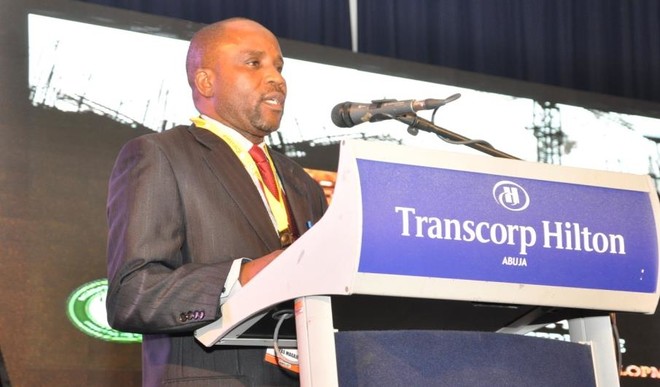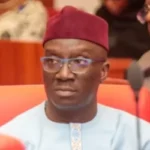Barrister Kefas Magaji is the Chairman of the Nigeria Law Reform Commission (NLRC) saddled with making sure the Laws of the Federation are up to date. In this interview, he speaks on the mandate of the commission and the status of the law revision exercise meant to usher in the up-to-date Laws of the Federation, among others. Excerpt:
Aside the reform of laws in the country, what other objectives guide the work of the commission?
The primary mandate of Nigeria Law Reform Commission is to ensure that our laws remain updated. The society is dynamic and the law also has to change to meet up with dynamics of the society so that the law can remain relevant otherwise the community will be far ahead and the law will be far behind. So, the essence of the commission is to make sure that we keep track with the developments in the society to ensure that our laws remain updated.
Now the component dealing with law revision exercise, also called review, is essentially to ensure that we revise all our existing laws to make them up-to-date. And when you ask what is revising the laws, I will say it is simply looking at our law books to see which of the laws are still relevant and which of them are now obsolete. We remove the laws that are obsolete from our law books for instance, last year’s Appropriation Act. The Appropriation Act 2018 is the only one still relevant.
Also, we now have the Administration of Criminal Justice Act (ACJA) and before then we had the Criminal Procedure Code or Act, which were applicable at the federal level but some states still have these legislations. So, having the Criminal Procedure Code or Act in the federal capital is no longer necessary hence the need for their removal.
Again, we discover the current Laws of the Federation is the one of 2004, and from 2004 till date there are some of these laws that have been amended. There are some provisions of these laws that the court has pronounced them to be inconsistent with the provisions of the constitution; such laws need to be removed and the Laws of the Federation updated.
What stage are you now for the law revision that started in June this year?
Normally by international convention, law revision exercise should be done after every 10 years and like I said, the last Laws of the Federation review was in 2004, so we are behind time. So, the commission applied to the president through the Attorney General of the Federation and we were given the approval to do the law review exercise.
We decided to do a three-level work. We engaged consultants who did the first level of work and what they did was to look at the entire Laws of the Federation; to look at the different amendments that have been made, identify areas of amendment, and identify those amendments that can now be inserted. That stage has been concluded.
We have engaged experts that are now reviewing what the first working group did to now see whether the areas they identified for correction or for insertion or for omission were properly done. The idea is to come up with a body of laws that is so precise, to present the law as it is currently. The expert group is about to round up and when they do, there is the third stage where we will bring in experts in legal drafting who will now do the actual drafting of these amendments into these areas that have been identified. When they insert each provision, we also have editors who will do the editorial work.
As it is now, are we likely to have a final copy of Laws of the Federation 2018?
We are working towards that direction but we can’t really make it. The reason is because the first challenge was the first working group for us to identify all the laws that were passed from 2004 to now. We had problems with the National Assembly to collate all the laws they passed within that period. We had problems with government printers in getting from them the laws that were gazetted within that period. So, it took us a long time to generate these laws. Also, we tried to bring on board laws that were missing from the 2004 edition and have not been repealed by the National Assembly or the final court.
How soon do we expect the new Laws of the Federation?
As it is, we are expecting the expert review group to submit their report before November ends. Some of them have started turning in their reports. So, by the first week of December, we will assemble the legal drafters and editors so they can now be working on the laws. We have the soft copies of these laws, so all we need to do is to insert the amendments where necessary. So, we are expecting that by December we should be able to finish this stage and the next stage will now be going for printing. All things being equal, we are looking forward to early next year for the new Laws of the Federation to be ready.
The non-implementation of extant laws to the letter is said to serve only to clog up the wheel of justice dispensation in the country. What is NLRC doing independently or in conjunction with others stakeholders to address this situation?
The mandate of the commission is just to make sure that the laws that we have remain relevant and meet up with the developments in the society. Enforcement of the law on the other hand is for different arms. So, it is not within our mandate to ensure these laws are enforced.
NLRC is expected to submit its report to the office of the AGF. Would you subscribe to the suggestion that the commission be made independent to make it more efficient?
I do not blame the office of the AGF for some of the challenges of the commission. The main problem is that our presidential system is a marriage of the British parliamentary system and the American system. The law commission in England for instance submits its report to the Attorney General who is a member of the parliament. So, when you submit to the Attorney General, it is as good as submitting it to the parliament because ministers come from the parliament. But in Nigeria we have the presidential system fashioned after the American system where the Attorney General is not a member of the parliament. So, when you submit your report, you are submitting it to the executive instead of it going directly to the parliament. This is why we have a little challenge.
But the National Assembly, realizing these challenges, came up with a proposal and there was a national workshop where it was agreed that the commission should come up with a proposal for the amendment of its law so that as we submit our report to the AGF, if the AGF does not act within six months, we can submit that same report to the National Assembly. With this arrangement, we remain part of the executive reforming laws for the executive arm of government. In the event of the executive not utilizing the report we submit, since we are funded through the public purse, our report should go to the National Assembly. If they see the merit in it, they can proceed to passing it. I think this arrangement would be quite okay for the commission.
What is the status of this arrangement?
We have made the proposal and it has gone through the first and second reading. The Senate has passed it; it is just waiting for the concurrence of the House of Representatives. Once that is passed, it will reduce the challenges.

 Join Daily Trust WhatsApp Community For Quick Access To News and Happenings Around You.
Join Daily Trust WhatsApp Community For Quick Access To News and Happenings Around You.


